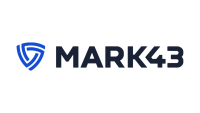The following is paid content sponsored by Mark43.
By Police1 BrandFocus Staff
Cloud technology is a hot topic among police leaders, especially when it comes to operational software like records and evidence management systems and computer-aided dispatch.
Many LE agencies are finding that cloud and software-as-a-service (SaaS) solutions offer a quicker and less costly startup and smoother operations than software applications hosted and maintained in house, but purchasing these tools requires an updated approach to the procurement process.
Because cloud solutions separate the software from the hardware, you can focus on your agency’s goals rather than the specific tools you’ll use.
Focus on ends rather than means
Most requests for proposals include highly detailed sections on hardware, software and equipment. But the process often takes so long that these specifications are obsolete by the time the solution is delivered.
Any working computer, tablet or smartphone with internet access should be able to use a SaaS platform. Because the software is accessed through a browser, operating system and hardware generally don’t matter. This means you can focus more on your agency’s goals than on a lengthy laundry list of technical specifications.
Consider your specific interoperability requirements as well as agency objectives. What does your system need to do? Do officers in the field need to access the system from their cruisers or mobile devices? This will open the field to different types of responses. Look for a system that provides configurations and settings that can be adjusted to match your agency’s policies and procedures.
Don’t ask the same questions you asked last time you bought your system, advises David Jochim, vice president of deployments for Mark43, a company that provides cloud-based records management and dispatch. While that may get the process done quickly, it may not get you the best results.
“It’s very tempting – we’ve all been on the RFP process where you just dust off the one you used last time and update it and send it back out,” Jochim said.
Separate procurements for hardware and software
Be aware that this approach may mean a longer discernment process once proposals come in. Also, your agency will have to launch a separate procurement process when it’s time to replace hardware.
But hardware upgrades should be easier with a cloud platform because there’s no need to ensure that new hardware is backwards-compatible.
SaaS solutions also mean less downtime because the installation process is eliminated. Users simply log in to an existing online platform once the agency’s subscription is activated.
“They can use any modern browser and there’s almost zero chance that it won’t work just like it did on the old hardware,” Jochim said.
Working with a dedicated server provider whose sole job it is to provide fail-safe performance also relieves the burden of server maintenance and security for both the software vendor and its law enforcement customers. For example, Mark43 partners with Amazon Web Services, a relatively new player in the public safety market, to host its platforms in the cloud.
Consider newer providers
Be careful about requiring that a vendor have a certain number of years of experience. While that might appear to reduce risk, it also restricts your options. Newer companies may offer innovations not available from older companies, and widening the field gives your agency more choices.
There’s no reason you can’t choose the company that’s been around 25 years, Jochim said, but leaving out this requirement allows you to solicit bids from newer companies that may better meet your needs.
Address data ownership up front
Data management has become a major concern for police agencies. With a cloud solution, your agency has perpetual access to its data, but that data is held in the custody of your service provider.
So what happens if that vendor goes out of business, or your agency decides to make a change? You don’t want a vendor to hold your data hostage.
Jochim recommends an upfront plan for data ownership and disposition. Be sure to spell out your expectations from the beginning. Write into the RFP and contract that your agency owns the data and will get it all back should you choose another vendor at the end of the contract.
Cloud-based technology solutions are changing the way police agencies manage data and operations, as well as how they approach the procurement process. These online platforms operate no matter what hardware is used to access them, so police agencies can focus on organizational goals rather than specific hardware items.
To attract a variety of bids for your agency, focus on what your agency wants to achieve and how. Seek the tools that will help you accomplish those goals.



